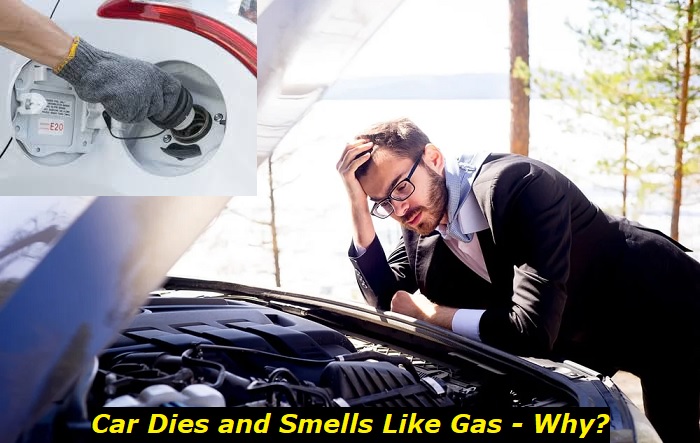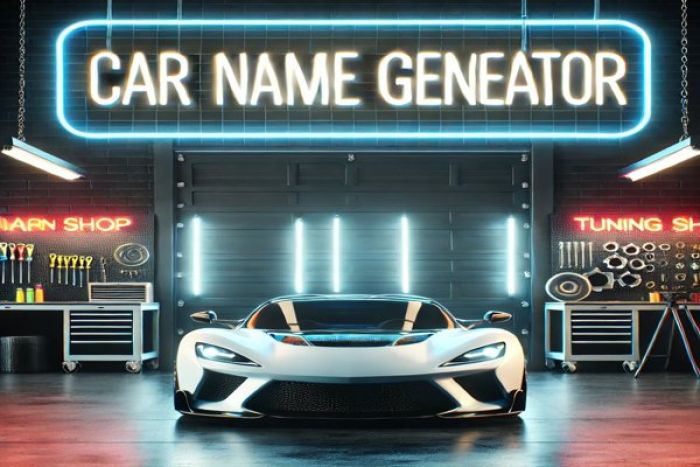If the agonizing experience of starting your car only to have it cut out a few seconds later with an intense smell of gasoline is all too familiar, then you know how demoralizing this can be. Not only that, but it could also lead to dangerous consequences. Fear not! We are here to help uncover why this might be happening - there are common causes for situations like these, and we can get through them together.
Engine stalling issues highlights
- Level of urgency:High
- Can you drive?Obviously, no
- DIY inspection:Possible but very complicated
- DIY repair:Impossible
- Price for repair:$350 - $900
- Common Reasons:Fuel or air supply problems, immobilizer
- Ways to fix:Professional inspection is needed, checkif there is fuel in the tank

What Should You Know About Air-Fuel Mixture?
One of the most important things to know about an air-fuel mixture is the ideal ratio. This ratio can vary depending on the type of engine, but in general, a good rule of thumb is that for every 10 parts of air, you should use one part of fuel.
If there is too much fuel mixed with the air, it will create an overly rich mixture that can cause performance issues and excess emissions. On the other hand, if there is too little fuel mixed with the air, it will create an overly lean mixture that can also cause performance and emission problems.
Ambient temperature, barometric pressure, engine type, and altitude all have an effect on the ideal air-fuel ratio. The colder it is outside, the richer the mixture needs to be; conversely, if it is hotter outside, a leaner mixture should be used. If you live in an area with varying altitudes or barometric pressure levels, you may need to adjust your air-fuel ratio accordingly.
In addition to understanding the ideal air-fuel ratio, you should know what potential problems that can arise when the mixture is off. If the mixture is too rich, it can cause a decrease in fuel economy and an increase in emissions.
Conversely, if the mixture is too lean, it can cause engine misfires and damage components like spark plugs and exhaust valves. Regularly checking your air-fuel mixture can help keep your engine running smoothly and efficiently.
Finally, it is crucial to understand the different types of fuel delivery systems that are available in today's vehicles. Some vehicles use carburetors, while others use fuel injection systems or direct injection systems. Each of these systems has a different way of delivering fuel to the engine, so be sure to understand how your vehicle's system works in order to properly adjust the air-fuel ratio.
What Can Cause a Car to Start and Then Die and Gas Smell?
If your air-fuel mixture is too rich, it can cause your car to start and then quickly die with the smell of gasoline. Let's take a look at some of the possible causes:
1) Malfunctioning Oxygen Sensor
A malfunctioning oxygen sensor can cause an overly rich air-fuel mixture, leading to the car starting and then dying with a gasoline smell. The oxygen sensor is a sensor that measures the amount of oxygen (O2) in the exhaust and sends this information to the engine control unit (ECU). If the ECU receives inaccurate information from the oxygen sensor, it can cause an overly rich air-fuel mixture. This can lead to engine misfires, poor fuel economy, and an excess of emissions.
2) Clogged Air Intake Filter
When an air intake filter becomes clogged, the air-fuel ratio can become too lean, which leads to a car that starts and then shuts off, accompanied by a gasoline odor. The air intake filter is responsible for preventing dust and debris from entering your engine's cylinders. If the filter becomes clogged, it will restrict the amount of air reaching the engine, leading to an overly lean air-fuel mixture. This can cause engine misfires, poor fuel economy, and excess emissions.
3) ECU Problems
When an ECU is not working correctly, an unbalanced air-fuel mixture can occur, resulting in the vehicle starting and then immediately turning off with an unpleasant gasoline odor. The ECU is the brain of your vehicle's engine and is responsible for controlling the fuel and air mixture. If it is not working correctly, it can cause an unbalanced air-fuel ratio that leads to engine misfires, poor fuel economy, and excess emissions.
It is important to be aware of the causes of an overly rich or overly lean air-fuel mixture in order to properly diagnose and rectify any issues. Make sure that all of your vehicle's components, such as the oxygen sensor, air intake filter, and ECU, are functioning correctly in order to maintain a balanced air-fuel mixture. Regularly inspecting these parts of your car can help keep it running smoothly and efficiently.
What Are Other Cause Of Gasoline Smell?
If your car is able to start, however, if you feel a gasoline smell, it can indicate that your car is leaking gasoline. The leak could be coming from the fuel line, fuel injector, or even the gas tank itself. This can lead to a dangerous situation as gasoline fumes are highly flammable and should be addressed immediately.
Another possible cause of a gasoline smell in a vehicle is an issue with the evaporative emission control system (EVAP). This system is responsible for controlling fuel vapors from the gas tank and sending them to the engine. If this system fails, gasoline fumes can enter the passenger cabin of your car, resulting in a strong gasoline smell.
Finally, an exhaust leak could also be to blame for a strong gasoline odor. If there is an exhaust leak, it can cause your vehicle to emit higher levels of unburned fuel which results in a strong gasoline smell.
It can be potentially dangerous to drive a car with a gasoline smell, so it is important to take steps to fix the issue addressed as soon as possible. A certified mechanic will be able to diagnose and repair whatever problem is causing the gas odor in your vehicle.
Different Ways To Detect Gas Leaks In Your Vehicle
Gasoline leaks can be very dangerous and should always be taken seriously. A quick way to detect a gas leak in your vehicle is by checking for puddles or wet spots underneath the car. If you find any, it could indicate that there is a fuel leak coming from either the fuel line, fuel injector, or even the gas tank itself.
Another way to detect a gas leak is by smelling the air around your vehicle when your engine is running. If you're able to smell gasoline, then there may be an issue with either the fuel line or the fuel injector.
Finally, if you have an exhaust leak, it can cause higher levels of unburned fuel to escape from your vehicle. This will usually result in a strong gasoline odor as well.
What To Do When Car Starts Then Dies and Smells Like Gasoline?
You should first diagnose the problem in order to determine the cause of your car's starting and dying accompanied by a gasoline odor. If you are unable to identify the source of the problem, you should take your vehicle to a qualified mechanic for inspection.
Bottom Line
Understanding your vehicle's air-fuel ratio and the different components that control it is essential for keeping your engine running optimally. Be sure to check for any signs of an unbalanced mixture, such as poor performance or a gasoline smell, to ensure that your car is operating at its best.
If you notice any of these issues, be sure to investigate the cause and take appropriate action in order to maintain a balanced air-fuel mixture. With proper maintenance, you can keep your car running strong for years to come.
About the authors
The CarAraC research team is composed of seasoned auto mechanics and automotive industry professionals, including individuals with advanced degrees and certifications in their field. Our team members boast prestigious credentials, reflecting their extensive knowledge and skills. These qualifications include: IMI: Institute of the Motor Industry, ASE-Certified Master Automobile Technicians; Coventry University, Graduate of MA in Automotive Journalism; Politecnico di Torino, Italy, MS Automotive Engineering; Ss. Cyril and Methodius University in Skopje, Mechanical University in Skopje; TOC Automotive College; DHA Suffa University, Department of Mechanical Engineering






Add comment